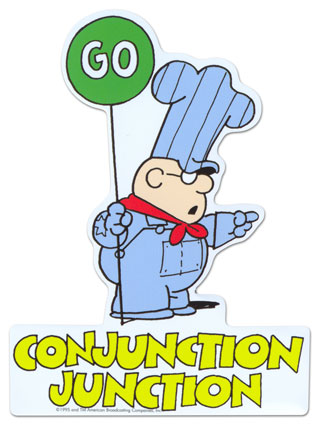By Sharon Fleshman
As a young girl, I watched an animated TV series called “Schoolhouse Rock” just about every Saturday morning. Launched in the 70’s, Schoolhouse Rock reinforced principles in grammar, science, history, etc. for children in an engaging and creative way. One of the episodes covered the verb, which was personified as a superhero while the background song had the catchphrase “Verb! That’s what’s happening!” The underlying idea, I think, was that the action verb has an empowering and captivating role in language.
Seventies lingo aside, action verbs also play an important role in resumes. Potential employers don’t just want to know where you worked and what your title was. They also want to know “what was happening” as it relates to your particular role. In other words, they are most interested in what you actually did at a given job, internship or extracurricular activity. Using precise and strong action verbs can empower you to take ownership of your accomplishments while capturing the interest of recruiters. Of course, there are plenty of action verbs to choose from, so I’ll focus a bit on how to avoid diluting your experience section.
1) Eliminate the opener “Responsibilities include:”
Recruiters looking at a stack of resumes may initially skim them. Therefore, statements about your experience must compel recruiters to keep reading. If you write something like “Responsibilities include: conducting literacy assessments for third graders, designing surveys and analyzing survey responses, and facilitating five focus groups consisting of elementary school teachers”, your key accomplishments may be overlooked. Instead, start with the verb and write “Conduct literacy assessments for third graders. Design surveys and analyze survey responses. Facilitate five focus groups consisting of elementary school teachers.”
2) Cut back on the use of verbs such as “Assisted” and “Worked”
Certainly, “assisted” and “worked” are action verbs, but they can be vague. You don’t want recruiters to have to guess at what you actually did. For instance, suppose you write “Worked on a literacy assessment project for third graders.” This might work as a summary statement if you want to emphasize that you have had exposure to work in literacy. However, if you also performed critical tasks within the project, you need to be more specific. Did you design the assessment? Did you administer the assessment? Also, don’t say “Assisted with teaching art to 20 second-graders in an after-school program” if you actually taught. Rather, simply start with “Taught ….”
I recognize that students are sometimes reluctant to be more direct with stronger action verbs if they worked with a team as they don’t want to appear to take more credit than they should. If that is your concern, you can write statements like “Co-taught art to 20 second graders in an after-school program” or “Conducted literacy assessments for third graders with a team of teachers.”
Students may also choose verbs like “assisted” and “worked” when they want to bring less attention to their actual tasks and more attention to the field in which they worked. Consider a scenario where a nursing student performed clerical tasks in a clinic and observed a nurse practitioner at work. The student could say “Gained exposure to pediatric nursing while working in a community clinic” or “Shadowed a nurse practitioner while assisting her in a community clinic.” Keep in mind that some of the clerical tasks could be relevant. For example, greeting patients who come to the clinic would allow the student to grow in establishing rapport with patients, which is a required skill for nursing.
Additional resources for writing resumes are available on the Career Services website. Feel free to stop in for walk-ins or call the Career Services office to make an appointment with a career counselor to help you write a “happening” resume.


